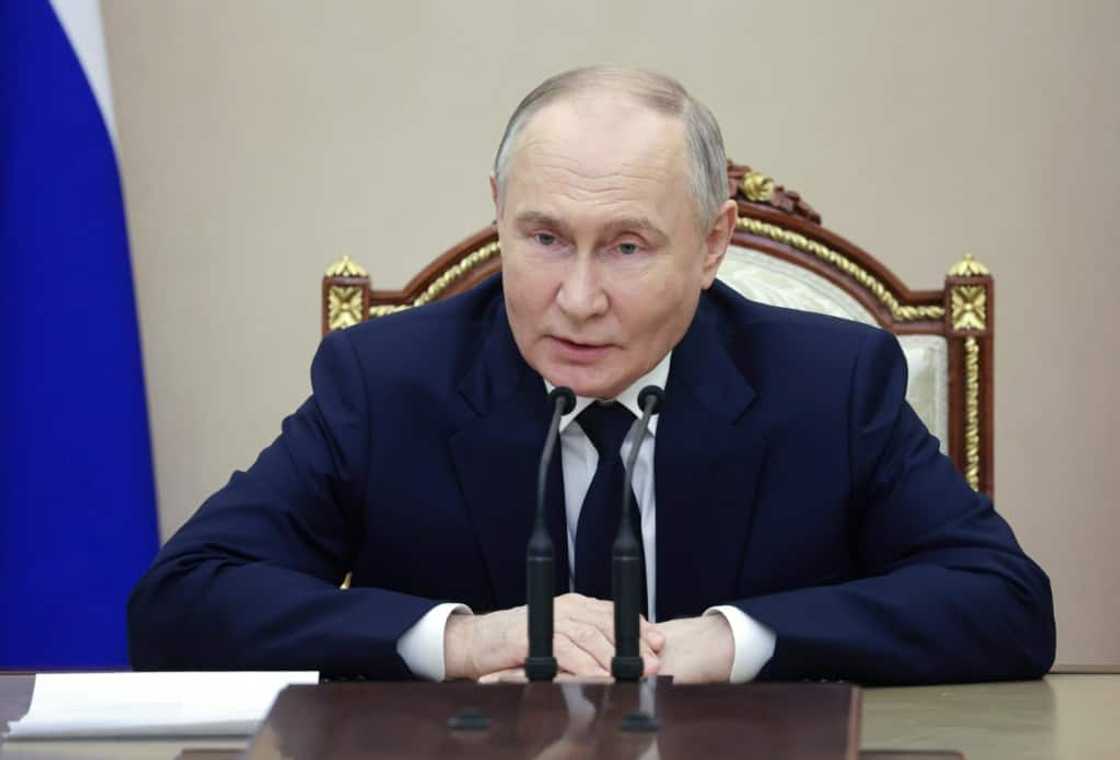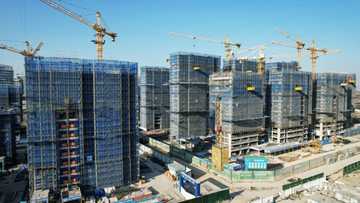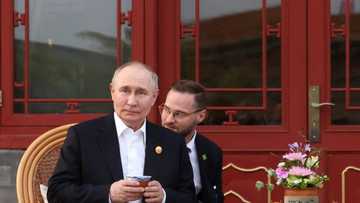Military spending pushes Russian economic growth up

Source: AFP
Russia's economy grew 5.4 percent in the first quarter of 2024, official statistics published Friday showed, as President Vladimir Putin denied military spending on his Ukraine offensive was reaching unsustainable levels.
The Kremlin has heavily militarised Russia's economy since sending troops into Ukraine in February 2022, with the vast outlays helping to power growth and cushion the blow of Western sanctions.
But it has also set off inflation and comparisons with runaway defence spending that hobbled the Soviet Union in the 1980s.
The Rosstat statistics agency said the first quarter growth was up from 4.9 percent in the fourth quarter of last year.
The inflation rate also picked up over the month, however, to 7.8 percent.
On a state visit to China, Putin denied that Russia's vast military spending -- which he said had passed eight percent of GDP -- had hit unsustainable levels.
"It is not critical yet. In the Soviet Union in 1985-1986, defence spending was 13 percent" of GDP, he said.
"Taking into account the state of the economy, macroeconomic indicators and budget revenue forecasts, combined defence and security spending of eight-and-a-bit percent is not critical," he added.
Earlier in the week, Putin had said Russia's military spending was a "great resource" that should be used "carefully and effectively."
He said Friday that experts believe Russia's state finances still have room to accomodate even higher expenditure.
Russian troops last week launched a major new offensive on Ukraine's northeastern Kharkiv region. Putin has signalled he sees Moscow's path to victory on the battlefield by outspending Ukraine and its Western backers.
Inflation problems
The reorientation of Russia's crucial energy exports to the likes of China and India has helped it weather Western sanctions that many analysts predicted would push Russia into a deep recession.
China has become Russia's most important economic ally over the last two years.
Putin on Friday blasted US attempts to put pressure on Beijing over its ties with Moscow.
He called US threats of sanctions on Chinese banks and companies that deal with Russia "illegitimate" and said lenders in both countries were working to overcome problems with cross-border payments.
The United States has targeted companies in third countries, including China, that it says are helping Russia purchase sanctioned goods for its military.
While helping to secure strong headline growth, Russia's increased military spending has caused some economic difficulties at home.
Inflation climbed from 7.7 percent to 7.8 percent in April, Rosstat said on Friday -- ahead of analysts' expectations and further from the government's official 4.0-percent target.
The central bank has hiked its key interest rate to 16 percent in a bid to combat rising prices.
And parts of the economy not supported by the offensive -- such as the services and IT sectors --- are seeing record labour shortages. Many young men have been drafted, left the country or recruited by the booming weapons industry.
PAY ATTENTION: Follow Briefly News on Twitter and never miss the hottest topics! Find us at @brieflyza!
Source: AFP



